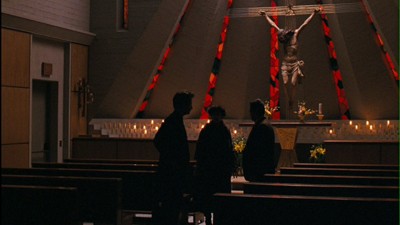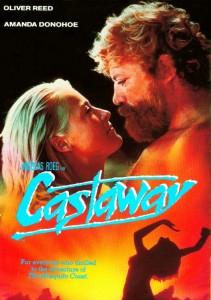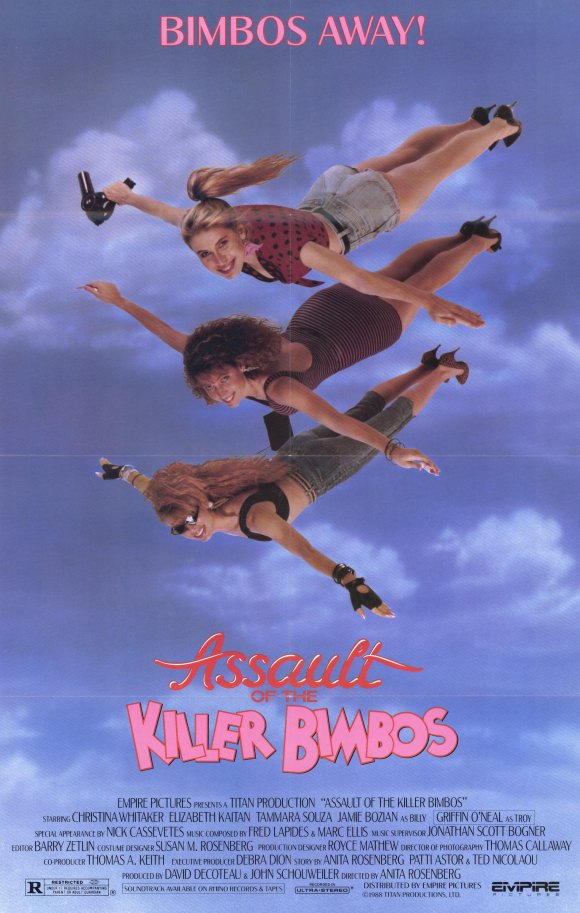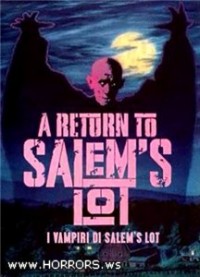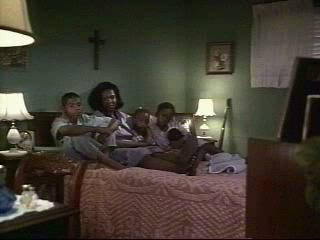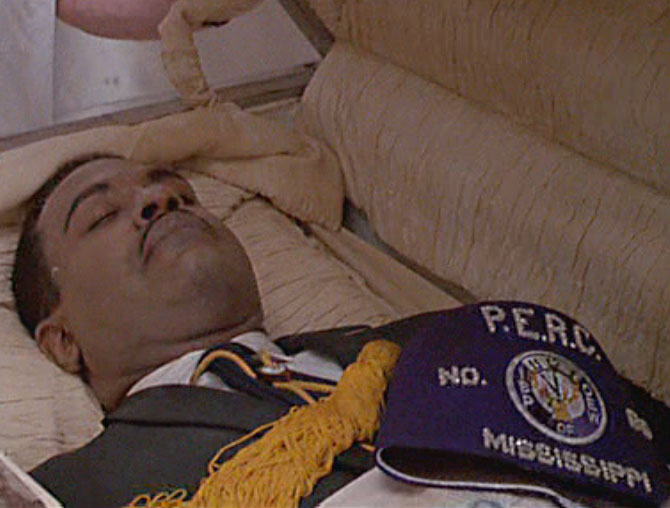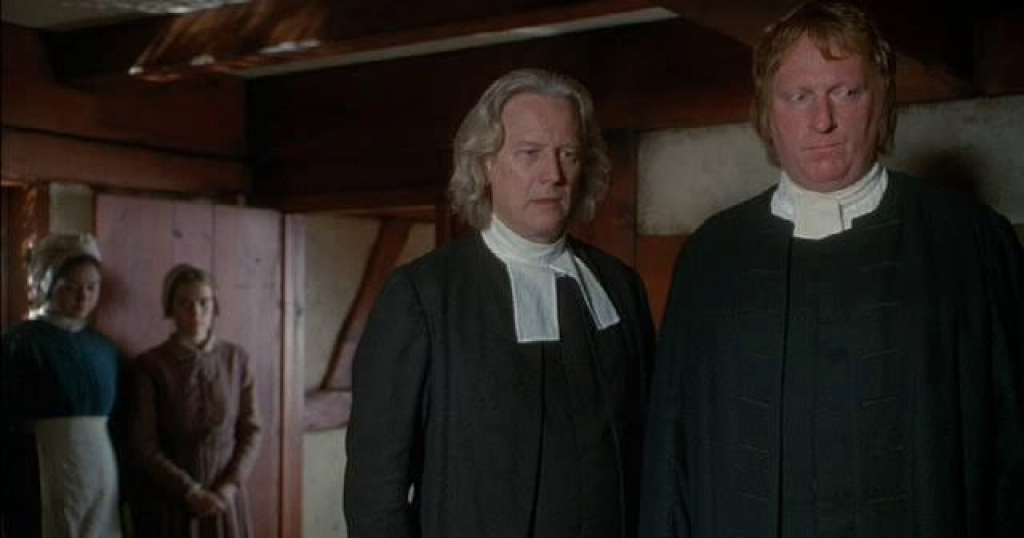From the Chicago Reader (September 16, 1988). — J.R.
CASTAWAY
*** (A must-see)
Directed by Nicolas Roeg
Written by Allan Scott
With Oliver Reed and Amanda Donohue.
ASSAULT OF THE KILLER BIMBOS
** (Worth seeing)
Directed by Anita Rosenberg
Written by Ted Nicoleau, Rosenberg, and Patti Astor
With Christina Whitaker, Elizabeth Kaitan, Tammara Souza, Mike Muscat, Nick Cassavetes, Dave Marsh, and Patti Astor.
A RETURN TO SALEM’S LOT
** (Worth seeing)
Directed by Larry Cohen
Written by Cohen and James Dixon
With Michael Moriarty, Samuel Fuller, Andrew Duggan , Ricky Addison Reed, June Havoc, Evelyn Keyes, and Ronee Blakley.
The three movies listed above are all probably playing in Chicago this week, but not in any local theaters; they’re available in video rental stores and playing on home screens. Recent releases that have never opened theatrically, and presumably never will, they represent a growing breed of movie, at once omnipresent and unacknowledged.
Ever since the fairly recent time when the amount of money spent in this country on video rentals began to exceed the amount spent on movie tickets, notions about moviegoing have become even more specialized and limited. In contrast to moviegoing in the 20s, 30s, 40s, and 50s, when individual movies provided national experiences that were public and shared, moviegoing in the 60s, 70s, and 80s has increasingly become a less communal activity.

